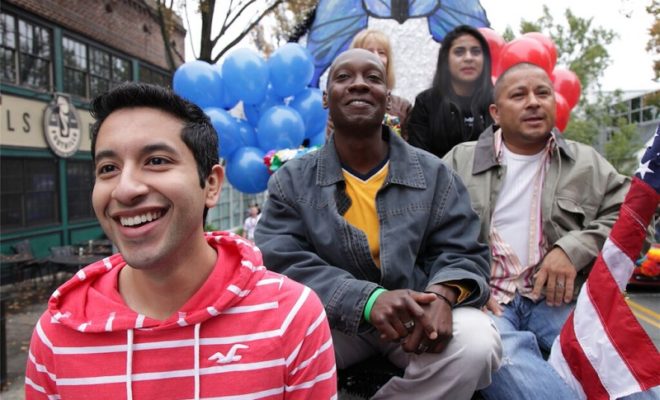
Entertainment
‘Forbidden’ Dream Coming True
Moises Serrano was admittedly nervous as he packed for his flight to LA for Outfest and the premiere of “Forbidden: Undocumented and Queer in Rural America,” a film documenting his youthful activism. “I’m getting all my cloths ready and calming my nerves,” he said, which seems ironic, since he’s shared his story many times since coming out to the world as queer and undocumented as a teenager in North Carolina. Serrano spoke to reporter Laurie Schenden about his film, premiering tonight at Outfest.
GOWEHO: You became an activist at such a young age, were you always outspoken?
SERRANO: I was definitely not outspoken in high school. But everyone was always asking me, what college are you applying to? What’s your Social Security number? And I was always terrified of those questions because I knew I didn’t have one. I also knew most likely I couldn’t go to college.
GOWEHO: Did they know you are gay?
SERRANO: I never came out in high school. I graduated in 2007, and for the next 3 years I worked in whatever job I could find. The last job I had was at a factory working from 9 to 7 in the morning. I just felt like living wasn’t really worth it. But I knew suicide wasn’t the end for me. I knew I had more potential. I just had a lot to give and this couldn’t possibly be the end of my story.
G: How did your activism begin?
S: My sister, my mom and I got in the church van and went to the immigration reform marches that were happening in 2010, and after that I just got hooked. That culminated in sharing my story that same year … in the hopes of putting pressure on our politicians to vote for the Dream Act…. It lost by just 5 votes.
G: What was more difficult, being gay or undocumented?
S: It’s so tricky. When I came out of the shadows as undocumented, I wasn’t out as gay at that time. It wasn’t until a couple years later that I started being more vocal about being queer and undocumented because a pastor was using the Bible to condemn homosexuals. I just thought this has got to stop. I wrote an op ed … it was front page news, so there was no hiding anymore.
G: Did your family already know about your sexuality?
S: No, [laughs] I hadn’t come out yet. My father took it surprisingly well, my mother cried a lot. She’s a fervent catholic, but she said at the end of the day, she still loves me and wants me to be happy.
G: Have you always been comfortable in front of crowds?
S: I love public speaking. In high school I started my own TV news show. It was the immigration movement that taught me the concrete skills that I needed to perfect my story.
G: What was it like growing up in rural North Carolina?
S: I lived in a small community, it was a town of one stoplight. We all knew each other so well, I never really thought that we had differences. I always thought of myself of being an American. It was really in 8th grade that I had this jarring moment that, oh I’m not just American, I’m a Mexican immigrant. There was a fellow classmate of mine who flat-out said that she hated me because I was Mexican. And I had never been discriminated against in my life before.
G: In California a lot of people hire undocumented immigrants, but complain about them being here.
S: Yeah, definitely, there’s a huge dichotomy, they want our labor but they don’t want our presence. I think, there’s no way for you to reconcile both of those points. We’re starting with this very inflammatory dialogue about immigrants–that we’re just going to keep them all out and deport them once and for all.
G: As in the opening of “Forbidden,” we hear Donald Trump talking about building a wall.
S: Right. I still don’t know what to make of it, because I know good people in the South and I know the negative encounters that I’ve had are not indicative of the overall population there. But there’s so much silence on the part of the allies don’t think like that. Why I feel this story is even more important—to humanize the issue.
G: The film certainly sheds light on the plight of undocumented children.
S: Yeah, it affects you in every single level of your being, psychologically, emotionally and culturally. You go from a legally protected space, a K through 12 system, but what happens after? I always talk about how we’re penalized and criminalized as adults for being undocumented. That’s such a huge complexity I’ve encountered. I can’t move out of my parents’ house, I can’t get a job, I can’t pursue my dream [of college] like any other normal adult would expect to get.
G: What do you say to those who say things like, you should’ve come here legally?
S: I understand there is a “process” for people to come here, but it’s actually not built to allow immigrant farmers like my parents were, to easily migrate here. The immigration system is very much an elitist system, and it was meant to not allow the farmers, who are most effected by the United States trade agreement, like NAFTA, to be able to migrate. What can we do? What are you going to do? I would stand in any line, I would pay any fine to be able to live without fear in this country if that line existed, but the point is that it does not.
“Forbidden: Undocumented and Queer in Rural America” screens at Outfest at 5 p.m. tonight at the DGA 2. See outfest.org.


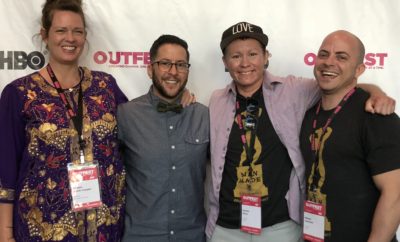
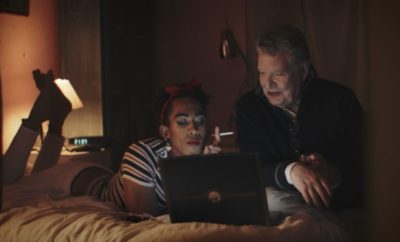
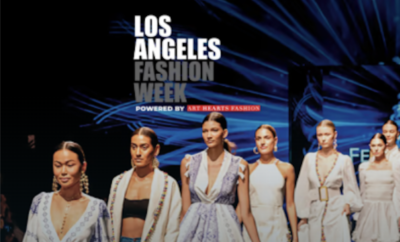
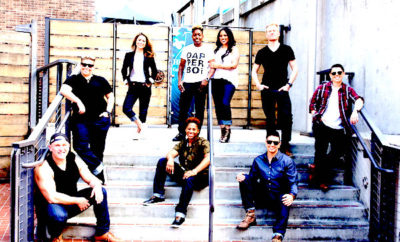
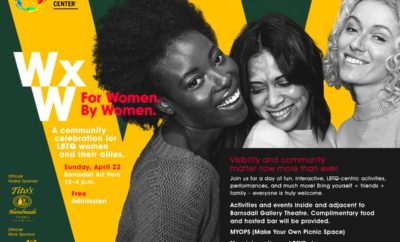

You must be logged in to post a comment Login